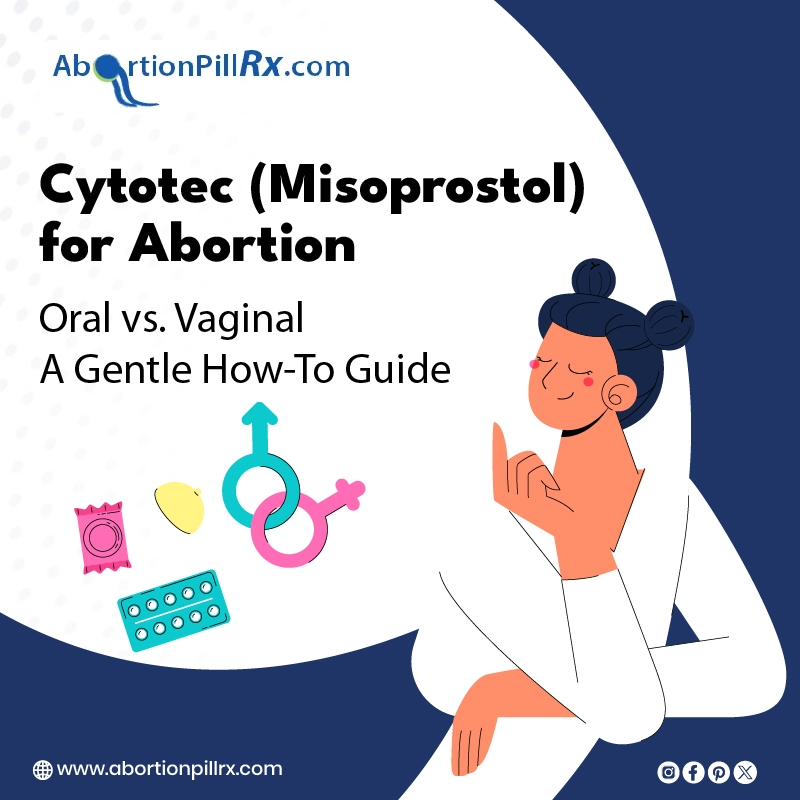Understanding Missed Miscarriage and 3 Ways to Move Forward.
How to begin healing from the loss.
Reviewed by Vanessa Lancaster
KEY POINTS-
A missed or silent miscarriage happens early in pregnancy and often has symptoms that can be overlooked.
The most common cause of a missed miscarriage is the embryo having the wrong number of chromosomes because of aging of the eggs.
A missed miscarriage puts stress on the brain and body as the patient tries to figure out what went wrong and if it was preventable.
We were trying to get pregnant for months. I finally went to a fertility doctor and when she examined me with an ultrasound, she said I had been pregnant and miscarried very early. I am in double shock! Because I have irregular periods, I didn’t even realize I was finally pregnant, and I had no symptoms of miscarriage.
None. Now I am so nervous that I am doing pregnancy tests all the time, so afraid I’ll miscarry again that I’m not sleeping, and so very sad thinking about what might have been. I wish I never knew.
My patient was describing what’s often called a missed miscarriage or silent miscarriage. Of course, all miscarriages are traumatic, and sadness, anxiety, guilt, and depression often follow any miscarriage. Since miscarriage is common, at least one in four pregnancies result in a loss. Friends and family often underestimate its emotional impact. Furthermore, there are no established social mourning customs after a miscarriage to help a patient, or her partner, ease the loss.
A missed or silent miscarriage, however, can create additional traumas.
First, the patient may not have a support group in place because the pregnancy might have been unknown or "silent," as well as the miscarriage. This means that the patient often feels alone when they receive the news, and if they choose to share the sad news with friends and family, they will have to relive the shock every time they explain that there was both a pregnancy and a silent miscarriage.
Next, because most missed miscarriages occur early in gestation, usually in the first trimester, friends and family often mistakenly assume the loss will not be as intense as a later loss.
Lastly, because stress goes up when the ability to predict what is coming next goes down, a missed miscarriage puts both brain and body on high alert as the patient tries to figure out what went wrong and whether it was preventable or their fault. Lucky Sekhon, a reproductive endocrinologist at RMA New York and a provider in Progyny’s network, explained that self-blame is misguided because the most common cause is the embryo having the wrong number of chromosomes due to the effects of time and aging on the eggs’ repair mechanisms. Sperm can also contribute the wrong number of chromosomes, but this is less common and usually not age-related unless the paternal age is very advanced (age 50 plus years).
So why were there no early warning symptoms? “It usually means that the ovary hadn't picked up on the embryo not being viable yet and was still producing hormones like progesterone, which stabilized the lining and delayed both bleeding and the uterine cramping triggered by the bleeding,” explained Sekhon.
Sekhon added,
I would not assume that there is an underlying issue beyond the embryo being abnormal, but if two or more miscarriages have taken place, consider testing to look for underlying predispositions to forming genetically abnormal or imbalanced embryos. In fact, at a certain point in the first trimester, everybody should have a scan to ensure the embryo is implanted correctly in the uterus, is viable, and is progressing normally.
Although moving forward on a family-building journey can be difficult after a miscarriage, moving forward is often the most effective way to regain your sense of control and balance the loss with hope.
Three ways to help you move forward include:
Begin acceptance. Start by creating your own memorial or ceremony to honor the pregnancy, or think it will give you some closure after the loss.
Speak to your doctor. Talk with your doctor if your fears about future pregnancies interfere with moving forward. Ask for reassurance that the miscarriage was not the result of anything specific you did or did not do. Ask what information was gained from the miscarriage that may help future treatment be more effective for you.
Find support. If your emotions are overwhelming your ability to heal, seek professional support from those trained to help. The American Society for Reproductive Medicine (ASRM), RESOLVE, the national infertility association, and the Psychology Today are just a few of the organizations that can guide you to them.
Sekhon reassures her patients that it’s “okay not to be okay” and that it takes time to process, heal, and grieve the loss of "what could have been." Also, it’s normal to feel very nervous if you are pregnant again, “especially up until the point where the miscarriage happened in the prior pregnancy.”
This road isn’t easy, and I remind my patients who are afraid to be optimistic because they don’t want to be disappointed again that hoping for success will not jinx their journey. Also, pessimism will not protect them from disappointment if they have another loss. Instead, I encourage them to re-label this period as pre-parenthood, not just post-miscarriage, and to remind themselves that there are many paths to parenthood. It’s important to take what you need to heal and seek professional help when needed.
Understanding Missed Miscarriage and 3 Ways to Move Forward.
How to begin healing from the loss.
Reviewed by Vanessa Lancaster
KEY POINTS-
A missed or silent miscarriage happens early in pregnancy and often has symptoms that can be overlooked.
The most common cause of a missed miscarriage is the embryo having the wrong number of chromosomes because of aging of the eggs.
A missed miscarriage puts stress on the brain and body as the patient tries to figure out what went wrong and if it was preventable.
We were trying to get pregnant for months. I finally went to a fertility doctor and when she examined me with an ultrasound, she said I had been pregnant and miscarried very early. I am in double shock! Because I have irregular periods, I didn’t even realize I was finally pregnant, and I had no symptoms of miscarriage.
None. Now I am so nervous that I am doing pregnancy tests all the time, so afraid I’ll miscarry again that I’m not sleeping, and so very sad thinking about what might have been. I wish I never knew.
My patient was describing what’s often called a missed miscarriage or silent miscarriage. Of course, all miscarriages are traumatic, and sadness, anxiety, guilt, and depression often follow any miscarriage. Since miscarriage is common, at least one in four pregnancies result in a loss. Friends and family often underestimate its emotional impact. Furthermore, there are no established social mourning customs after a miscarriage to help a patient, or her partner, ease the loss.
A missed or silent miscarriage, however, can create additional traumas.
First, the patient may not have a support group in place because the pregnancy might have been unknown or "silent," as well as the miscarriage. This means that the patient often feels alone when they receive the news, and if they choose to share the sad news with friends and family, they will have to relive the shock every time they explain that there was both a pregnancy and a silent miscarriage.
Next, because most missed miscarriages occur early in gestation, usually in the first trimester, friends and family often mistakenly assume the loss will not be as intense as a later loss.
Lastly, because stress goes up when the ability to predict what is coming next goes down, a missed miscarriage puts both brain and body on high alert as the patient tries to figure out what went wrong and whether it was preventable or their fault. Lucky Sekhon, a reproductive endocrinologist at RMA New York and a provider in Progyny’s network, explained that self-blame is misguided because the most common cause is the embryo having the wrong number of chromosomes due to the effects of time and aging on the eggs’ repair mechanisms. Sperm can also contribute the wrong number of chromosomes, but this is less common and usually not age-related unless the paternal age is very advanced (age 50 plus years).
So why were there no early warning symptoms? “It usually means that the ovary hadn't picked up on the embryo not being viable yet and was still producing hormones like progesterone, which stabilized the lining and delayed both bleeding and the uterine cramping triggered by the bleeding,” explained Sekhon.
Sekhon added,
I would not assume that there is an underlying issue beyond the embryo being abnormal, but if two or more miscarriages have taken place, consider testing to look for underlying predispositions to forming genetically abnormal or imbalanced embryos. In fact, at a certain point in the first trimester, everybody should have a scan to ensure the embryo is implanted correctly in the uterus, is viable, and is progressing normally.
Although moving forward on a family-building journey can be difficult after a miscarriage, moving forward is often the most effective way to regain your sense of control and balance the loss with hope.
Three ways to help you move forward include:
Begin acceptance. Start by creating your own memorial or ceremony to honor the pregnancy, or think it will give you some closure after the loss.
Speak to your doctor. Talk with your doctor if your fears about future pregnancies interfere with moving forward. Ask for reassurance that the miscarriage was not the result of anything specific you did or did not do. Ask what information was gained from the miscarriage that may help future treatment be more effective for you.
Find support. If your emotions are overwhelming your ability to heal, seek professional support from those trained to help. The American Society for Reproductive Medicine (ASRM), RESOLVE, the national infertility association, and the Psychology Today are just a few of the organizations that can guide you to them.
Sekhon reassures her patients that it’s “okay not to be okay” and that it takes time to process, heal, and grieve the loss of "what could have been." Also, it’s normal to feel very nervous if you are pregnant again, “especially up until the point where the miscarriage happened in the prior pregnancy.”
This road isn’t easy, and I remind my patients who are afraid to be optimistic because they don’t want to be disappointed again that hoping for success will not jinx their journey. Also, pessimism will not protect them from disappointment if they have another loss. Instead, I encourage them to re-label this period as pre-parenthood, not just post-miscarriage, and to remind themselves that there are many paths to parenthood. It’s important to take what you need to heal and seek professional help when needed.





